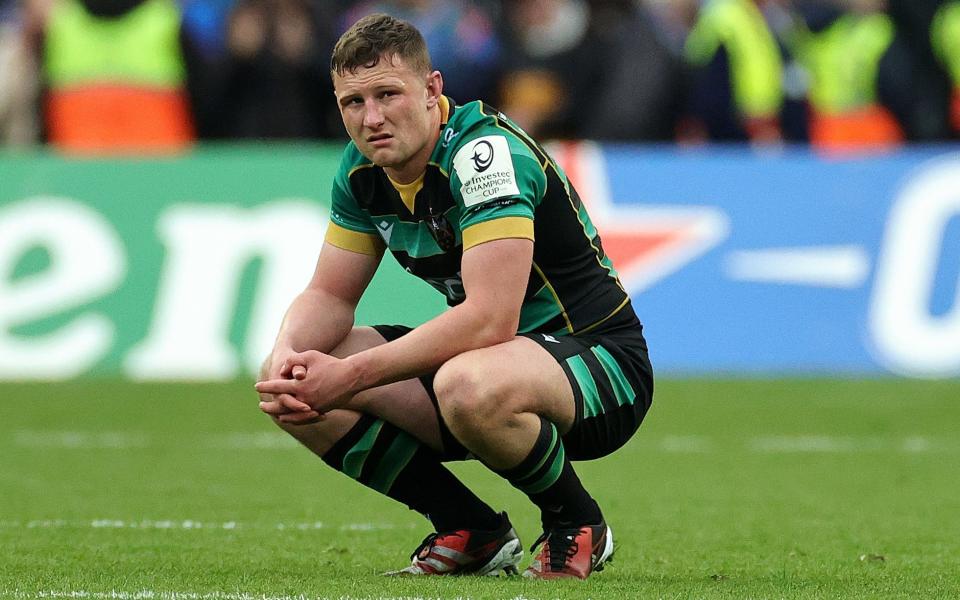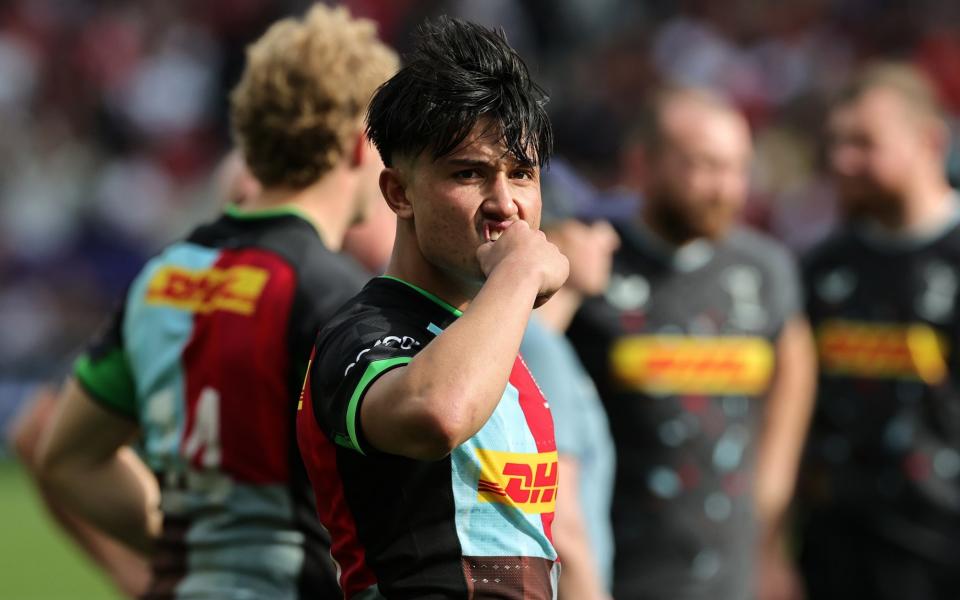Champions Cup is built on a socialist model – there is no prize money for winning

It was a step too far for both of the English sides competing in the semi-finals of Europe’s top club competition, the Investec Champions Cup. Northampton Saints’ sterling comeback against Leinster fell just short, with Ireland’s powerhouse province being given a scare but ultimately emerging as 20-17 winners. It was probably as much as you could expect from the Saints, who had been slightly off-key the previous week against Harlequins. There is no disgrace in falling short against a side with such a high European pedigree.
It was little different when it came to Harlequins visiting those other European aristocrats – Toulouse. Had it not been for one of Quins’ infamous first halves, where they conceded five tries, they might have won. As it was, their self-inflicted mistakes were punished mercilessly by Toulouse, particularly the yellow card for Jack Walker, and Quins’ second-half dominance counted for little.
These brave losses will undoubtedly have been unwelcome for everyone connected with the English clubs. Well, almost everyone, because there is a small group of people at Saints and Quins for whom there might well have been mixed emotions when they considered the financial ramifications of progressing further.

The present structure of rewards for competing in the Champions Cup is markedly dissimilar to other sports. By way of comparison, the winners of matches in the second round of the FA Cup win £67,000 and they share the gate money, with 45 per cent going to each team and 10 per cent going to the Football Association to be redistributed through football’s pyramid. When it comes to the semi-finals and final, the prizes for winning are £1 million and £2 million respectively, with the losers getting £500,000 and £1 million, again respectively. When it comes to the Champions League you are in a different stratosphere. The winners receive about €20 million (£17 million), the runners-up €15 million and the semi-finalists €12.5 million.
A variety of sources, including European Professional Club Rugby, confirmed that this year’s Champions Cup has no prize money, with clubs generating and sharing revenue from things like gate receipts. This will probably come as a surprise to most rugby fans, and indeed sports fans, who assume that progress in a cup competition must, invariably, mean accompanying financial success.
The clubs voted for this structure, it was not imposed by EPCR, so this is not a case of bashing a governing body. There are opposing ways to look at this issue. However, the anomalies that this financial structure produces might make the parties involved want to revisit the topic and consider whether it is working as well as desired, in the way expected.
In the rounds preceding the semi-finals and final, the competing clubs share gate receipts. This means that both clubs’ expenses are defrayed and, in the case of the home team, might generate a profit. In the case of, say, Leinster playing at the Aviva Stadium, it could mean both sides sharing the receipts of close to 52,000 spectators. If the game were played at Croke Park, the figures would be higher because of an 82,000 capacity. In many cases, Leinster’s opponents would be better off playing away, as they would receive more money than playing at their home stadium.
Lack of reward favours French teams
When it comes to the last two stages of the Champions Cup, the gate receipts are retained by EPCR and the net proceeds are distributed between all of the teams competing in the competition that year. There is provision for the expenses of the teams competing in the semi-finals and finals to be defrayed but there is no guarantee that they will be fully compensated and several sources have told me that those expenses could reach £50,000, depending on where they must travel.
It is almost a socialist model to pool income and redistribute it in the way this is done. At least this way every club gets something, even those who only compete in the earliest stages of the tournament. On the other hand, it runs counter to the natural order of cup competitions, which almost always reward progression and winning. It does not seem right that the last four teams and the winners face a possible financial loss for their efforts.
The last, and possibly unacknowledged, effect of this policy, is to lock in the advantage that this gives better financed teams, which includes most of the Top 14 sides. Take the example of one of the Welsh regional teams, which are known to be struggling financially; it does not sit easily that a good cup run, and an unlikely winning of the cup, could embarrass them financially. Time for a rethink?

 Yahoo Sport
Yahoo Sport 






































